|
Late last year Victoria University Press published a brilliant new memoir/biography by Auckland journalist and author Adam Dudding. The book, about Adam’s father Robin Dudding, a man considered to be the greatest New Zealand literary editor of his generation, signals a radical departure in the New Zealand memoir genre. Sitting somewhere between memoir and biograpy it is written from the personal perspective of the protagonist’s son, as a kind of voyage around his father. Robin Dudding was editor of Landfall in the 1950s and then went on to establish his own literary journal, Islands providing a crucial alternative publication platform for all of New Zealand’s major writers. He was also a highly unconventional, nonconformist and flawed character whose vastly underpaid labours compromised the well-being of his wife and six children, a man with a shadow side whose dark moods and controlling nature, emerging sharply through his middle and later years, dominated the family home. The portrait Adam cleverly and insightfully paints shows a man of perplexing contradictions who supported feminism but thwarted his wife’s attempts at getting a university education and a job, a kind father figure who was at times great fun to be with and who trained his son in the art of editing but on other occasions was a tyrannical bully. Yet, and maybe because of this fraught upbringing his son, Adam, emerges healthy and well-adjusted, equipped with real literary talent and the astute, observing eye of the writer. My Father’s Island: A Memoir is a candid, funny, perceptive and highly readable account of a colourful bohemian patriarch and his family. It is also a must-read for people engaged in a memoir project most particularly for its original handling of a self-reflexive strand of confession and critique, whereby the author puts himself in the middle of the story, and also discusses the research process as it unfolds. In 2014, Adam attended a six week series of Masterclasses in Memoir at the Michael King Writers’ Centre on Takarunga, Mt Victoria in Devonport. He was about halfway through the writing of his book by then and was already well informed on the subject of memoir making his contribution to the discussion perceptive and stimulating. In this interview I asked Adam about the writing process, about his research and reading programme, literary precedents and influences, his family’s contribution to the story, the editing process and also how he arrived at the structure of his complex, engaging narrative. These were his answers: Adam shall we start with the genre? Would you classify My Father’s Island: A Memoir as a memoir/biography of a key figure in New Zealand’s literary landscape? How would you describe your approach? Something like that. My father’s significance in the world of New Zealand letters was something I couldn’t overlook, but his literary life was in the book because of how it shaped his life, rather than because of its historical significance per se. The book is also pretty subjective (ie, I’m in there as the narrator), and is neither a complete nor chronological record of Dad’s life, which means it probably fits in the box of “memoir” more comfortably than that of “biography”. Early in the book you wrote ‘I want to write an intimate, impressionistic book, not something academic and exhaustive’ — you thought someone else could do that — and at seventy pages into the story you wrote ‘the truth remains though that I don’t really know how to write a book.’ So how did you adapt from writing longish journalism articles into a sustained block of writing enough to fill an entire book? Structuring an individual chapter wasn’t too different from writing a long newspaper feature, but figuring out the larger structure across chapters made me quite anxious, so before I started writing, I spent my summer reading a dozen or so memoirs about parents, looking for things to imitate or to avoid. I picked up a few structural tips there. I spent quite a while planning the overall chapter outline before I started, and I’d go back and tweak that after completing each chapter, and then about halfway through I created a giant wallchart to help me keep track of everything. It had two axes for chronological time versus narrative time, and colour-coding for narrative voice, and lots of little boxes outlining the themes and events of each chapter, plus big arrows to help me remember that if a fact had been teased in Chapter 2, it needed to be paid off by Chapter 18 etc. It was partly a ridiculous two-day act of procrastination, but it did help me see where the chapters were heading. This would have to be one of the most enjoyable and engaging biographies of a literary figure I’ve read, one that signals a new direction in New Zealand literary biography moving away from the notion of authorial objectivity and detachment and towards a warmer portrait where the author’s personal connection to the biographical figure is a strength of the narrative. Can you explain how you arrived at this method? Thanks! But I’m not sure it’s such a new direction: the subjective-memoir-about-a-parent thing has been going strong since the English poet Edmund Gosse invented the form with his 1907 book Father and Son, about his famous naturalist father Philip and their complex relationship. Gosse had already written a big formal biography of his father seventeen years earlier, but in the later book he puts the personal relationship in the foreground and the career in the background, which was, apparently, a new and shocking departure from tradition (it was also shocking because it wasn’t the hagiography that a good son might be expected to write). There’ve been a decent number of books along the same lines since then. For me the starting point was in those anecdotes you tell people about your parents, so I never considered writing anything but a personal, subjective, book. I think attempting a classically objective biography of a parent would be rather difficult; it also seems a bit of a waste not to exploit the unique perspective you’re likely to have because you’re their child. On influences, you had mentioned, on my course, your enthusiasm for English author Blake Morrison and his book And when did you last see your father? about his larger than life GP father as a source of inspiration. I can see how your self-reflexive style and the journal like quality of some passages where you describe the research process as it unfolds, your sleuthing, might have been encouraged by that marvellous memoir and the companion volume about his mother Stories My Mother Never Told Me where Morrison reflected on the challenges and dilemmas of writing biography. Were these books a revelation? Tell me how Blake Morrison influenced you? I was very impressed by And When Did You Last See Your Father? for a number of reasons – the confessional style, the handling of time and the nature of memory, the blunt portrayal of his father’s gory death and the author’s own less-than-saintly behaviour – and I consciously borrowed some of those. I didn’t get round to reading the sequel about Morrison’s mum; I’d already read a tall pile of books in preparation, and really needed to get the hell on with writing my own. I will read it someday though. Your book also has echoes of the work of New Zealand author Martin Edmond. I’m thinking of his Autobiography of My Father and also his very distinctive and personal take in the biographies of artist Philip Clairmont The Resurrection of Philip Clairmont and painter Colin McCahon, Dark Night Walking with McCahon. Did his writing inspire your own and were there any other sources of influence, Martin Amis on his relationship with his father Kingsley Amis, in his memoir Experience, for instance? I did read Autobiography of My Father as part of my research. I liked aspects of it, especially the subjective narrative voice and the lovely poetic writing, but a large section of it is a full transcript of an interview Edmond did with his father, which took rather more patience and concentration than I could muster. I’ve also heard great things about the other two books you mention, but haven’t read either. Over the two and a bit years I was working on my book, I read a fair amount of memoir and other narrative non-fiction, as well as a fair amount of New Zealand writing, all of which I suspect had some influence. Off the top of my head, that would include: Janet Frame’s Owls Do Cry, her autobiographical trilogy and Gifted, the Patrick Evans novel about her and Frank Sargeson; a father-memoir called The Scientists by American Marco Roth; HHhH by Lauren Binet; which is an amazing mix of war history and a navel-gazing account of the process of writing that war history; various memoirs about parents including ones by Michael Frayn, Tim Jeal and Alexandra Styron; some essays by Joan Didion; Kevin Ireland’s childhood memoir; short pieces of memoir from here and there by Bill Manhire, Bill Glass, Greg O’Brien and others; and various stories and essays I encountered when reading my way through the back-catalogue of Dad’s magazine Islands. I’ve not read Experience. Another book that I loved was Anna Funder’s Stasiland, which, rather like HHhH, is an example of how a writer can put herself right in the middle of a non-fiction story about historical events without being a narcissistic bore. About the research process its highlights and low points? I understand you read through vast volumes of archival records at the Turnbull Library — you counted 358 foolscap folders many of which were up to 5cm thick — and you also questioned your five sisters using those sessions to check and verify and also to discover the story? Is there an excerpt in the memoir that is an amalgam of the various siblings perspectives? The research consisted of about 25 interviews with family, family friends and former colleagues of Dad; two weeks of skimming many thousands of pages of documents in the Turnbull, snapping photos of anything that looked half-interesting then spending several more weeks back at home re-reading and indexing those photos; and some weeks more doing the same with the many boxes of documents in my sisters’ basements. It was occasionally boring leafing through pages of irrelevant guff, but it was mostly a hugely enjoyable experience: I was learning about my family, and about myself, and getting a lesson in mid-century New Zealand Lit at the same time. I would occasionally have a small panic about not getting through everything in the remaining time, or that I would overlook something interesting in my haste, but mostly it was great fun. As I’m the youngest there’s a lot of Dudding family life that predates my earliest memories, so I turned to my sisters for their accounts of those years. I wrote the chapter about our years in Christchurch in the late 1960s and early 1970s fairly directly from a series of interviews I did with each of them. How long did My Father’s Island take to write? Were there certain eureka moments or lucky breaks along the way? When were you happiest in the writing? It was about eight or nine month’s full-time work spread over three years, because apart from a three-month chunk of upaid leave (thanks Creative New Zealand for making that possible) I had to fit my writing around a full-time job. I enjoyed almost all of it: the documentary research was fascinating; interviewing friends and family is a real treat – you get to ask direct, focussed questions in a way you’d never get away with if you were just chatting over Christmas lunch; the writing itself was as tricky and frustrating and rewarding as it always is; and completing each chapter was always a cause for a minor beer-related celebration. When I interviewed author David Hill for my book ‘The Writing Life: Twelve New Zealand Authors’ he described writing a novel, or a non-fiction book as ‘constructing’ it block by block which, I like, it's a very pragmatic and workmanlike attitude to the writing process. How would you describe your approach? The layered texture and shifting chronologies suggest it was not written in the order presented. I agree that a good proportion of writing is just solid slog. A journalist colleague says something similar about feature writing: once you’ve transcribed the interviews, got the facts clear in your head, and completed the painful process of writing a decent intro, he reckons completing a feature is a process of “laying bricks”. Inspiration might briefly strike when you’re looking for the perfect metaphor or linking passage, but underneath the pretty surface there has to be a solid sort of foundation and you build up from there. Early on, I sat at my keyboard dredging up as many interesting memories as I could, getting them down in the order they surfaced, but I’d only write the scene or anecdote properly once I reached the chapter where it belonged. In other words, I pretty much wrote the book in the order you read it. How did you arrive at your opening and your ending? I wrote about the funeral as a sample chapter for my publisher, very early on, simply because I had a home video of the day to hand, meaning I could write something detailed and accurate relatively easily. I hadn’t really planned it as being the opening chapter, but once it was done it seemed as good a place to start as any. The ending was slightly more deliberate, in that I took a camera and notebook to my childhood beach with the intention of using that visit as the frame on which to hang some rumination about the sea and childhood and family and so on. I’d been thinking about something I learnt in School C music, which was that at the end of a long piece of music, a Beethoven symphony, say, the orchestra would spend ages bashing out perfect cadences in the home key, so the listener would know that the journey was over and they could now relax because they have reached The End. I figured the same probably applied to the shape of a book, which is why there are several chapters in a row, right at the end, where nothing much happens, and I instead recapitulate and mull over what’s happened in the rest of the book. I wasn’t sure if it worked as an ending, but my editor didn’t tell me to change it much, so that’s how it stayed. About editing. Ideally an editor is a facilitator of the process, posing the searching questions that make the writer think harder, alerting you when you’ve rambled on too long and suggesting cuts, checking for accuracy and generally helping you to refine and polish your text. I’m interested to hear about your working relationship with your editor at Victoria University Press, how much did she assist with the shaping of the text? I hugely enjoyed working with Ashleigh Young at VUP. Without trying to impose a different style, she got inside the way I wrote, then improved and polished the copy in innumerable ways. In particular I’d tied myself into some horrible knots by jumping around with tenses, and she did quite a bit of work unmuddling that for me. Over a couple of months we exchanged about 100 emails – mostly marked-up Word files in which Ashleigh would suggest a million tiny changes like getting the macron on “Māori”, hundreds of medium-sized ones such as using a more fitting adjective, and just a smallish number of more significant ones, such as rearranging the timing of a punchline, or losing entire sentences. I didn’t keep count, but I’d say I probably accepted 99% of the tiny changes, 70% of the medium-sized, and about 50% of the major ones, though I’d reject her suggestions only after some (occasionally lengthy) agonising. Just a few times, when I couldn’t decide which version was better, I did a blind testing on my wife, and each time she chose Ashleigh’s version, so I went with that. In the build up to publication and reading the blurb on the back cover I had imagined the memoir was going to be harsher on your father and darker in tone. Bill Manhire, on the back cover endorsement, declaring that the book supplies an important piece of social and cultural history seen through the lens of a family tale also suggested that ‘Robin Dudding would have been proud of Adam writing this book but maybe he would also have been horrified.’ Was there an earlier tougher version? No. I think the horror Bill meant was more to do with the loss of privacy that the publication of the book entails, rather than because I was telling some sort of Angela’s Ashes horror story. Dad really didn’t like other people poking their nose into his business. Did you find the writing cathartic? Did something shift during the process, or did being a father yourself help you to understand your father and his demons, because this portrait is compassionate and written with genuine love and affection? It probably was cathartic to some extent, but it wasn’t as if I had some psychological burden that need to be lifted. I always felt love and affection for him, even when I was unimpressed by his domestic tyranny. But I certainly gained a fuller understanding of how things had looked from his perspective, especially by reading his letters to his friends. In these he was surprisingly open about his struggles with money and gloom and stress, in a way he never was with the family members who had to put up with the consequences of those struggles. About your mother, you say she was comfortable with the book and gave you her permission to proceed. I’m remembering how Blake Morrison wrote in a GRANTA article that his mother had read and approved the text for publication although she thought the parts about her husband’s mistress, were unnecessary. But later he learned that she had said to his sister, upon reading the book, ‘I could top myself’. Is your mother still happy post publication following the book’s wide exposure through radio and print interviews and published extracts in magazines? She’s not complained to me, and I’ve not heard anything from anyone else to suggest she hasn’t liked it, but she plays her cards quite close to her chest, my Mum, so you never know. There is a real sense in your writing that you were intent on a recuperative project. My Father’s Island: A Memoir reads as a son’s gift to his father, ensuring his legacy and contribution to the history of New Zealand literature lives on. Without your efforts his contribution might have been forgotten. What do you think? Restoration of his reputation certainly wasn’t a primary goal. His achievements were already quietly recognised in the literary community, even if they weren’t quite in the general history books. Rather than celebrating his legacy I was interested in looking at the contradictions around those achievements: the publisher of feminist fiction who was a tyrant to his own wife; the brilliant editor who had such trouble managing his time and money that he couldn’t keep on doing the work he loved. I always wanted this to be a book about people and relationships and how families work, and was anxious for that not be overshadowed by any sort of dutiful biographising. That said, it was lovely to hear the people I interviewed explain why and how he was so good at what he did. I’m proud of his achievements. Book extract My mother is an unusually difficult interview subject. Even when she isn’t evading a question, the neurological scrambling of her stroke can turn any conversation into a semantic adventure. She knows what’s going on and at times can speak utterly fluently. But, sometimes you need to find a comfortable position as she haltingly constructs a sentence in which some, perhaps all, of the words have been replaced with surreal alternates. You then repeat back a paraphrase of what you presume she meant, and she confirms or denies or, worse still, attempts to clarify, in which case you’re down a whole new rabbit hole. What happened? I ask. How did he win you over? ‘Well,’ says Mum. ‘He was keen I suppose. Yeah.’ Yes of course. But what happened? I presume you were keen too? ‘Well, no.’ (I briefly wonder if by ‘no’ she actually means ‘yes’, but dismiss the possibility. She seldom mixes those two up.) Look, I say. A minute ago you said you had loads of boyfriends, so you obviously weren’t so short of options that you had to accept Robin by default, were you? ‘No. But I thought he would make a good father.’ Ah! This is progress. But – is that enough on its own to decide to marry? This is courtship in the era of beat poetry, early rock ’n’ roll and Oswald Mazengarb’s scandalised inquiry into teen promiscuity in New Zealand. She must have found other things about Robin appealing as well. Did you like his twinkling eyes? I ask. Or his deep voice? His bony feet? His thrusting manhood? ‘Oh, all of those things,’ says Mum, and she cackles for a while without giving any more detail. I explain that understanding your parents’ courtship is an important existential matter for any child. It’s the historical moment where one’s future is on a knife edge, vulnerable to the outcome of a particular conversation, a well-timed offer of a cup of coffee, a pheromonal zephyr. Mum identifies this as horseshit, and laughs at me. Extract from My Father’s Island, a Memoir (VUP, 2016) © Adam Dudding About Adam Dudding Adam Dudding is a reporter for Fairfax Media and has won numerous feature-writing awards. He lives in Auckland with his wife, two children, two dogs and no chickens. This, his first book, has been shortlisted for the 2017 Ockham New Zealand Book Awards. 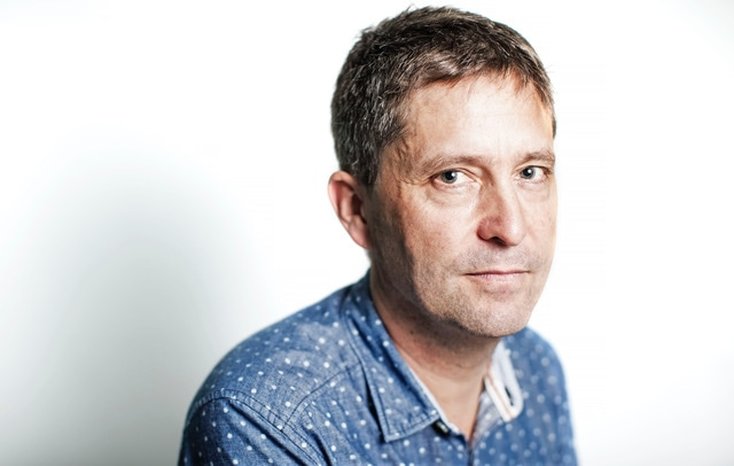 Comments are closed.
|
Author Reviews
All
|
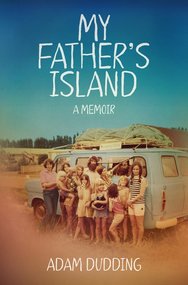
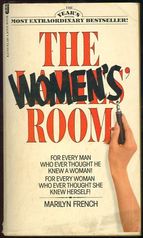
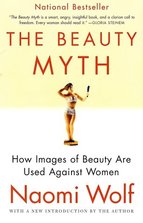
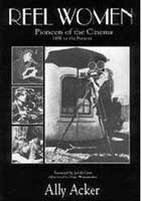
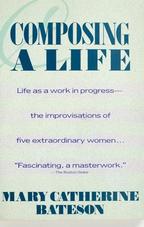
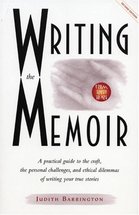
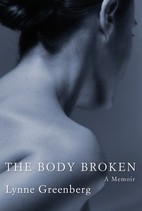
 RSS Feed
RSS Feed